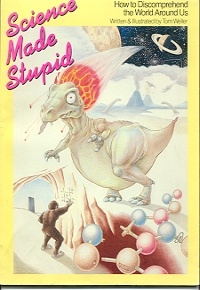 Something momentous happened this week. Of this I feel certain.
Something momentous happened this week. Of this I feel certain.
A little over a week ago, HP Research Scientist Vinay Delalikar claimed he could settle the central problem of theoretical computer science. That’s not the momentous part. The momentous part is what happened next.
Deolalikar claimed to prove that P does not equal NP. This means, very roughly, that in mathematics, easy solutions can be difficult to find. “Difficult to find” means, roughly, that there’s no method substantially faster than brute force trial-and-error.
Plenty of problems — like “What are the factors of 17158904089?” — have easy solutions that seem difficult to find, but maybe that’s an illusion. Maybe there’s are easy solution methods we just haven’t thought of yet. If Deolalikar is right and P does not equal NP, then the illusion is reality: Some of those problems really are difficult. Math is hard, Barbie.
So. Deolalikar presented (where “presented” means “posted on the web and pointed several experts to it via email”) a 102 page paper that purports to solve the central problem of theoretical computer science. Then came the firestorm. It all played out on the blogs.
Dozens of experts leapt into action, checking details, filling in logical gaps, teasing out the deep structure of the argument, devising examples to illuminate the ideas, and identifying fundamental obstructions to the proof strategy. New insights and arguments were absorbed, picked apart, reconstructed and re-absorbed, often within minutes after they first appeared. The great minds at work included some of the giants of complexity theory, but also some semi-outsiders like Terence Tao and Tim Gowers, who are not complexity theorists but who are both wicked smart (with Fields Medals to prove it).
The epicenter of activity was Dick Lipton’s blog where, at last count, there had been been 6 posts with a total of roughly 1000 commments. How to keep track of all the interlocking comment threads? Check the continuously updated wiki, which summarizes all the main ideas and provides dozens of relevant links!
I am not remotely an expert in complexity theory, but for the past week I have been largely glued to my screen reading these comments, understanding some of them, and learning a lot of mathematics as I struggle to understand the others. It’s been exhilarating.
Continue reading ‘O Brave New World!’





